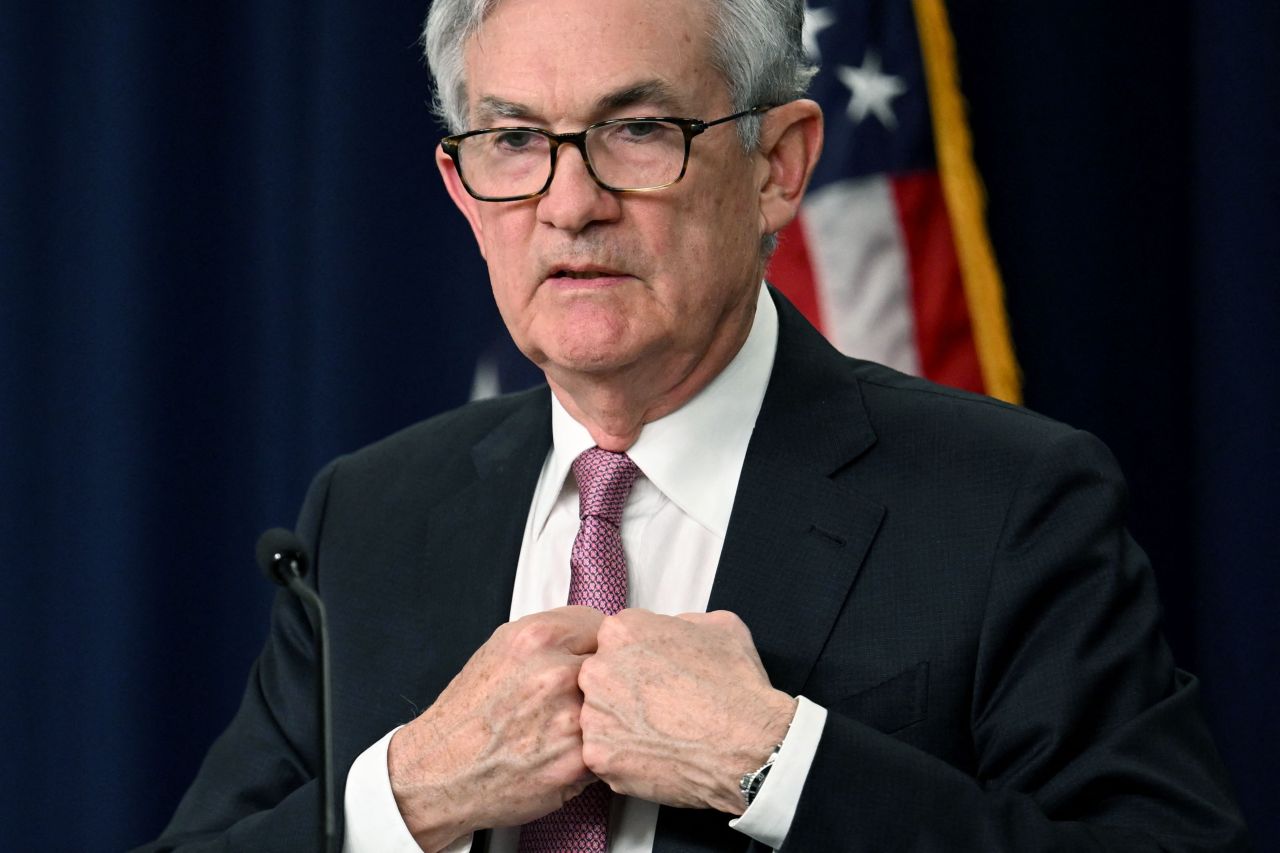 |
US Federal Reserve Chairman Jerome Powell speaks during a news conference in Washington on May 4. The Federal Reserve on Wednesday raised the benchmark lending rate by a half percentage point in its ongoing effort to contain the highest inflation in four decades. (AFP) |
The US Federal Reserve’s biggest rate hike in 22 years poses a dilemma for South Korea’s central bank in adjusting the pace of its monetary tightening and for local businesses seeking to go public, experts said Friday.
The Fed’s decision to raise its base rate by half a percentage point on Wednesday (Eastern Standard Time) that set its target federal funds rate to a range between 0.75 percent and 1 percent has presented new hurdles for the Bank of Korea, which is wary of the growing risks tied to capital outflow and a strong dollar trend.
In the past, a higher base interest rate in the US has led to a weakening of the Korean won and capital outflow. Recently-appointed BOK Gov. Rhee Chang-yong expressed concerns last month that the higher US base rate could result in higher inflationary pressure here due to the won’s weakening.
JP Morgan said in its Wednesday note that it noted a more hawkish-than-expected tone in the BOK’s April monetary policy meeting minutes, indicating the central bank is considering adopting a faster-than-expected monetary tightening timeline.
“The minutes bolstered the risk case of a higher terminal rate than our previous expectation of 2.25 percent that we highlighted in our previous note,” the note said. The global banking group now forecast the BOK’s base rate to be raised to 2.5 percent by the end of the year.
However, the BOK is also trying to hit the brakes on snowballing household debt, and a higher benchmark interest rate would lead to a heavier burden on debt repayment for households.
“The BOK could take a ‘big step’ in May and July under the scenario of healthy exports and consumer spending, but it’s not that easy for them at the moment,” Joo Won, a senior economist at the Hyundai Research Institute said.
“The household debt, which has increased to 1.862 quadrillion won ($1.46 trillion) as of end-2021, and risks that lead to an economic recession poses as major hurdles,” he added.
The BOK’s benchmark interest rate currently stands at 1.5 percent after its policy board voted to a quarter percentage point rate hike last month. It marked the central bank’s fourth pandemic-era rate hike, after it ended more than a year of a record-low interest rate in August last year. The BOK’s next monetary policy board meeting is scheduled for May 26.
Alongside the BOK, the Korean stock market was hit by the Fed’s latest move. SK shieldus, the cybersecurity arm of South Korean telecom giant SK Telecom, reportedly scrapped its plans for an initial public offering amid increased market volatilities due to the Fed’s “big step” rate hike. The firm received a lukewarm response from domestic and foreign institutional investors during a two-day demand forecasting session held Tuesday and Wednesday, dampening its original plan to raise up to 3.55 trillion won through its IPO initially scheduled for May 19.
While volatilities are likely to continue, some analysts say that the local market has already absorbed the risks stemming from the Fed’s monetary tightening, painting a rosier-than-expected picture.
“The market has preemptively absorbed the risks stemming from the US Fed’s hawkish moves, and the assessment of our stocks have fallen to the level during the 2008 financial crisis,” Samsung Securities analyst Jeong Myung-ji said.
“Excluding stocks that are more vulnerable towards interest rates, the effects of the US Fed’s rate hikes on the Korean stock market are likely to be weak,” Jeong added.
Korea’s benchmark Kospi closed 1.23 percent lower from the previous session at 2,644.51 on Friday, with foreigners offloading 357.9 billion won.
By Jung Min-kyung (
mkjung@heraldcorp.com)




![[Today’s K-pop] Blackpink’s Jennie, Lisa invited to Coachella as solo acts](http://res.heraldm.com/phpwas/restmb_idxmake.php?idx=644&simg=/content/image/2024/11/21/20241121050099_0.jpg)



